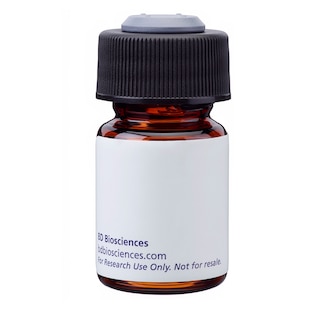-
Training
- Flow Cytometry Basic Training
-
Product-Based Training
- BD FACSDiscover™ S8 Cell Sorter Product Training
- Accuri C6 Plus Product-Based Training
- FACSAria Product Based Training
- FACSCanto Product-Based Training
- FACSLyric Product-Based Training
- FACSMelody Product-Based Training
- FACSymphony Product-Based Training
- HTS Product-Based Training
- LSRFortessa Product-Based Training
- Advanced Training
-
- BD FACSDiscover™ S8 Cell Sorter Product Training
- Accuri C6 Plus Product-Based Training
- FACSAria Product Based Training
- FACSCanto Product-Based Training
- FACSLyric Product-Based Training
- FACSMelody Product-Based Training
- FACSymphony Product-Based Training
- HTS Product-Based Training
- LSRFortessa Product-Based Training
- United States (English)
-
Change country/language
Old Browser
This page has been recently translated and is available in French now.
Looks like you're visiting us from {countryName}.
Would you like to stay on the current country site or be switched to your country?


.png)

Flow cytometric analysis of CD147 expression on BALB/c mouse thymocytes. BALB/c thymocytes were preincubated with Purified Rat Anti-Mouse CD16/CD32 antibody (Mouse BD Fc Block™) (Cat. No. 553141/553142). The cells were then stained with either APC Rat IgG2a, κ Isotype Control (Cat. No. 553932; dashed line histogram) or APC Rat Anti-Mouse CD147 antibody (Cat. No. 566868; solid line histogram) at 1 µg/ml. BD Via-Probe™ Cell Viability 7-AAD Solution (Cat. No. 555815/555816) was added to cells right before analysis. The fluorescence histogram showing CD147 expression (or Ig Isotype control staining) was derived from gated events with the forward and side light-scatter characteristics of viable (7-AAD-negative) thymocytes. Flow cytometry and data analysis were performed using a BD LSRFortessa™ Cell Analyzer System and FlowJo™ software. Data shown on this Technical Data Sheet are not lot specific.
.png)

BD Pharmingen™ APC Rat Anti-Mouse CD147
.png)
Regulatory Status Legend
Any use of products other than the permitted use without the express written authorization of Becton, Dickinson and Company is strictly prohibited.
Preparation And Storage
Product Notices
- Since applications vary, each investigator should titrate the reagent to obtain optimal results.
- An isotype control should be used at the same concentration as the antibody of interest.
- Caution: Sodium azide yields highly toxic hydrazoic acid under acidic conditions. Dilute azide compounds in running water before discarding to avoid accumulation of potentially explosive deposits in plumbing.
- This APC-conjugated reagent can be used in any flow cytometer equipped with a dye, HeNe, or red diode laser.
- For fluorochrome spectra and suitable instrument settings, please refer to our Multicolor Flow Cytometry web page at www.bdbiosciences.com/colors.
- Please refer to http://regdocs.bd.com to access safety data sheets (SDS).
- Please refer to www.bdbiosciences.com/us/s/resources for technical protocols.
Companion Products




.png?imwidth=320)

The RL73 monoclonal antibody specifically binds to mouse CD147. CD147 is type I membrane glycoprotein and member of the Ig superfamily. CD147 is also known as extracellular matrix metalloproteinase inducer (EMMPRIN) and gp42/basigin (BSG). The CD147 molecule is widely expressed on a variety of hemopoietic and non-hemopoietic cell types including thymocytes, lymphocytes, monocytes, granulocytes, erythroblasts and erythrocytes, endothelial cells and neoplasms. CD147 reportedly plays significant roles in the reproductive, nervous and immune systems and in tumor progression. In the immune system, CD147 can function as an adhesion molecule and signaling receptor that regulates leukocyte trafficking and immune and inflammatory responses.

Development References (4)
-
Arora K, Gwinn WM, Bower MA, et al. Extracellular cyclophilins contribute to the regulation of inflammatory responses. J Immunol. 175(1):517-522. (Clone-specific: Flow cytometry, Inhibition, In vivo exacerbation). View Reference
-
Coste I, Gauchat JF, Wilson A, et al. Unavailability of CD147 leads to selective erythrocyte trapping in the spleen. Blood. 2001; 97(12):3984-3988. (Clone-specific: Blocking, In vivo exacerbation). View Reference
-
MacDonald HR, Lees RK, Bron C. Cell surface glycoproteins involved in the stimulation of interleukin 1-dependent interleukin 2 production by a subline of EL4 thymoma cells. I. Functional characterization by monoclonal antibodies. J Immunol. 1985; 135(6):3944-3950. (Immunogen: Activation, Blocking, Radioimmunoassay). View Reference
-
Renno T, Wilson A, Dunkel C, et al. A role for CD147 in thymic development. J Immunol. 2002; 168(10):4946-4950. (Clone-specific: Flow cytometry, Fluorescence activated cell sorting, Inhibition). View Reference
Please refer to Support Documents for Quality Certificates
Global - Refer to manufacturer's instructions for use and related User Manuals and Technical data sheets before using this products as described
Comparisons, where applicable, are made against older BD Technology, manual methods or are general performance claims. Comparisons are not made against non-BD technologies, unless otherwise noted.
For Research Use Only. Not for use in diagnostic or therapeutic procedures.
Report a Site Issue
This form is intended to help us improve our website experience. For other support, please visit our Contact Us page.